How Language Games Are Used for Control
If you can't define anything, then men get to be women, apparently
Every few months on Twitter, someone who considers themselves a Very Smart Person tries to convince the rest of us small-minded bigots that we can’t actually know what a woman is because language can be imprecise and definitions are not always ironclad, which means that men can be women.
Last summer, for example, Yale philosophy professor Jason Stanley spawned days of jokes by asserting that definitions are so hard to provide, we can’t even hope to define “dessert plate” in a non-circular manner. Even better, he said this in response to a lawyer arguing for the need for an objective definition of “woman” in law.
This constructivist and solipsistic discourse has reared its head once again this past week, which has seen people pretending that not knowing the difference between a chair and a horse is, somehow, profound.
Dr. Elise Stickles, Assistant Professor in the Department of English Language and Literatures at the University of British Columbia jumped into the discussion with a multi-tweet thread expounding on “the nature of reality,” which was anything but.
She starts with the uncontroversial statement that categories aren’t as neat and tidy as we want them to be, which is true. However, the “anything goes” conclusion she thinks this brings us to is not. Accepting one idea does not necessitate a leap to the other like she tries to slyly pretend it does.
It all started with a very silly Twitter exchange where one user asked another to define “chair” in a non-circular manner. The user responded and quite easily did so, to which the original poster pulled a bait-and-switch. Seemingly no longer concerned with circular definitions at all, “Katie Martin” instead claimed that such a definition could also apply to a horse.
Never mind the fact that not a soul on earth would define a horse in this way, all such silly word games serve to show is that while language corresponds to reality, it is not reality itself. This exchange did not change what chairs are or what horses are, nor did it cause any real-world confusion between them.
Stickles, however, was quite thrilled about this naive argument, expounding at length about what it purports to show us about language and categories.
Stickles’ overreliance on language reminds me of the saying, attributed to Abraham Lincoln:
How many legs does a dog have if you call his tail a leg? Four. Saying that a tail is a leg doesn't make it a leg.
(I did a bit of digging and discovered the dog may have been a calf in the original iteration of this saying, but the message and point stand: calling something by a different word does not actually make it something else.)
It doesn’t matter if your personal list of chair features doesn’t include every chair and may be applied to horses by unscrupulous solipsists who don’t seem to believe that reality has any bearing on the issue at hand—a chair is still not a horse and a horse is still not a chair. The truth is, thankfully, not dependent on assistant professors who seek to obscure it.
Nor do edge cases mean there are no functional categories. No one actually approaches real life in this way—stressing about whether they can sit on a chair with three legs instead of four or eat at a table that is a little higher or shorter than usual. No one sees a dog with three legs and wonders if it can still be called a dog (nor do they wonder if it is really a three-legged chair), and we don’t look at a heart with a congenital condition and muse about whether or not it is really a heart.
But all of this is thrown out the window today when we try to discuss human sex, and in particular the words “woman” and “female.”
This is, of course, exactly where Stickles’ argument was headed from the beginning:
First, the assertion that “female” is more difficult to define than “adult” or “human” is mere opinion and I reject it. “Female” is a far more ancient category than the human species, for example, encompassing a dizzyingly vast array of life on Earth.
For two billion years, female organisms have gone on being female without Dr. Stickles around to tell them that female is actually a fuzzy category human language can’t properly define.
It doesn’t matter that imprecise language or a faulty understanding of sex might produce edge cases or the appearance of edge cases (to argue that menopausal women are not female when only females can go through menopause is really quite shocking in its hubristic boldness).
Stickles is muddying the waters to make them seem deep. She is trying to confuse what it means to be female so that someone in the mutually exclusive category of “male” can be one as well. This is sophistry, pure and simple. It is an argument meant to beguile, make you throw your hands up in defeat, and acquiesce to the demands of those trying to control your perception of reality.
Once so demoralized, people shrug and say, “sure, we can’t define ‘woman’ so I guess anyone can be one.”
This is exactly what Stickles is aiming for when she tries to accuse people who won’t buy her twisted and self-referential logic of “cognitive dissonance.”
There is no “uncomfortable truth” to anything that Stickles argued, nor is it revolutionary to note that language and definitions are imprecise. There are interesting discussions to be had about the nature language, to be sure, but you don’t have to be an English professor to know these things. However, it does seem that being an English professor nowadays makes it more difficult to understand that language is not actually reality—that is the “uncomfortable truth” that those who think mere language games give them an intellectual leg up need to come to terms with.
When people play these types of word games, they think they have found a clever way for men to be women. But what they have actually done is argue against any notion of truth and reality, undermining their own entire argument. If we cannot seek reality outside of language and imprecise definitions, then argument is futile and there is absolutely no reason to accept anything that Stickles is saying. We can simply go right along, as we have always done, knowing what horses and chairs and women are.
Since this can all be quite exasperating, let’s leave off on a happy note with some of the funny tweets inspired by Stanley’s infamous dessert plate tweet.
Or help support my work with a one-time donation through PayPal!


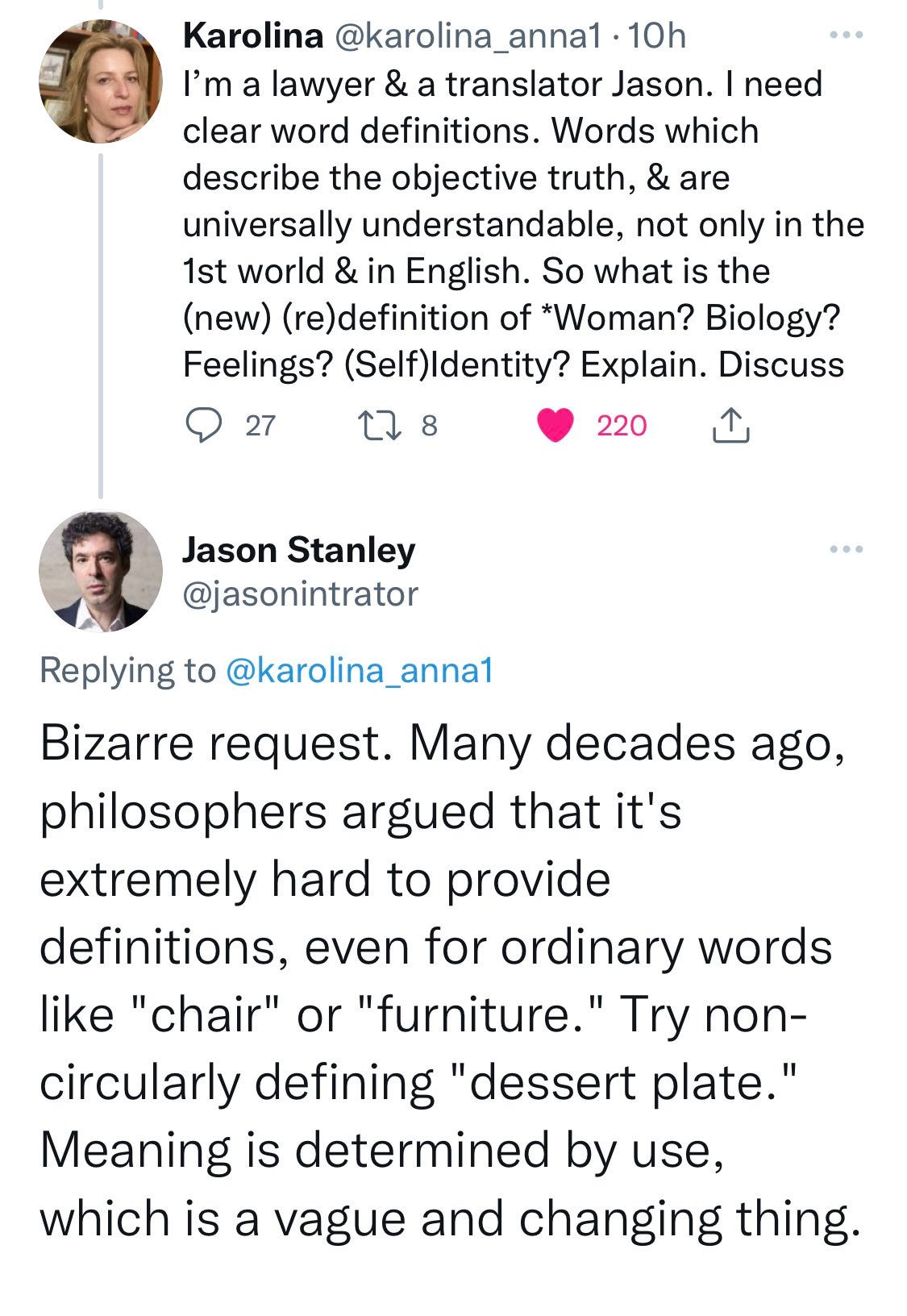
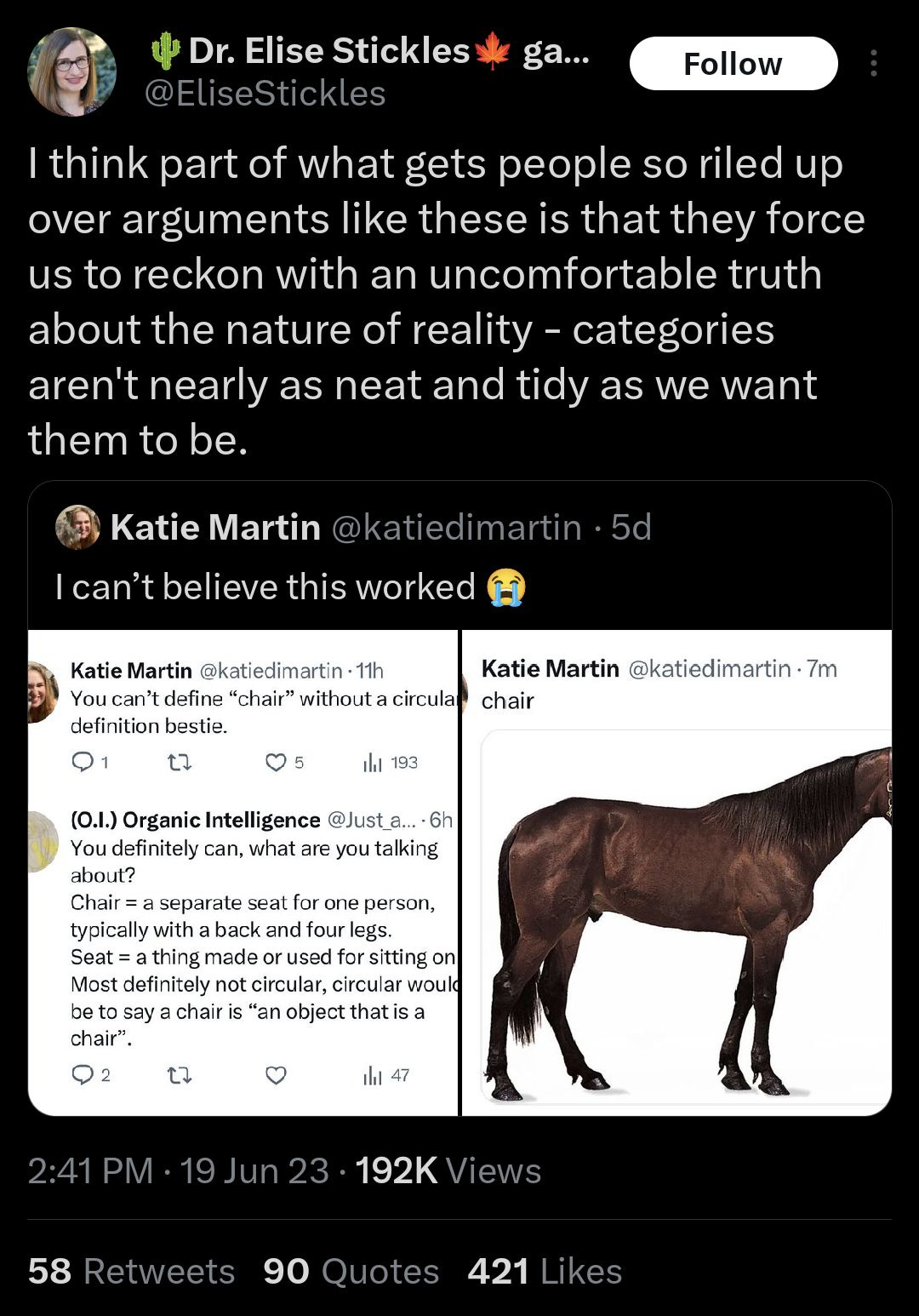
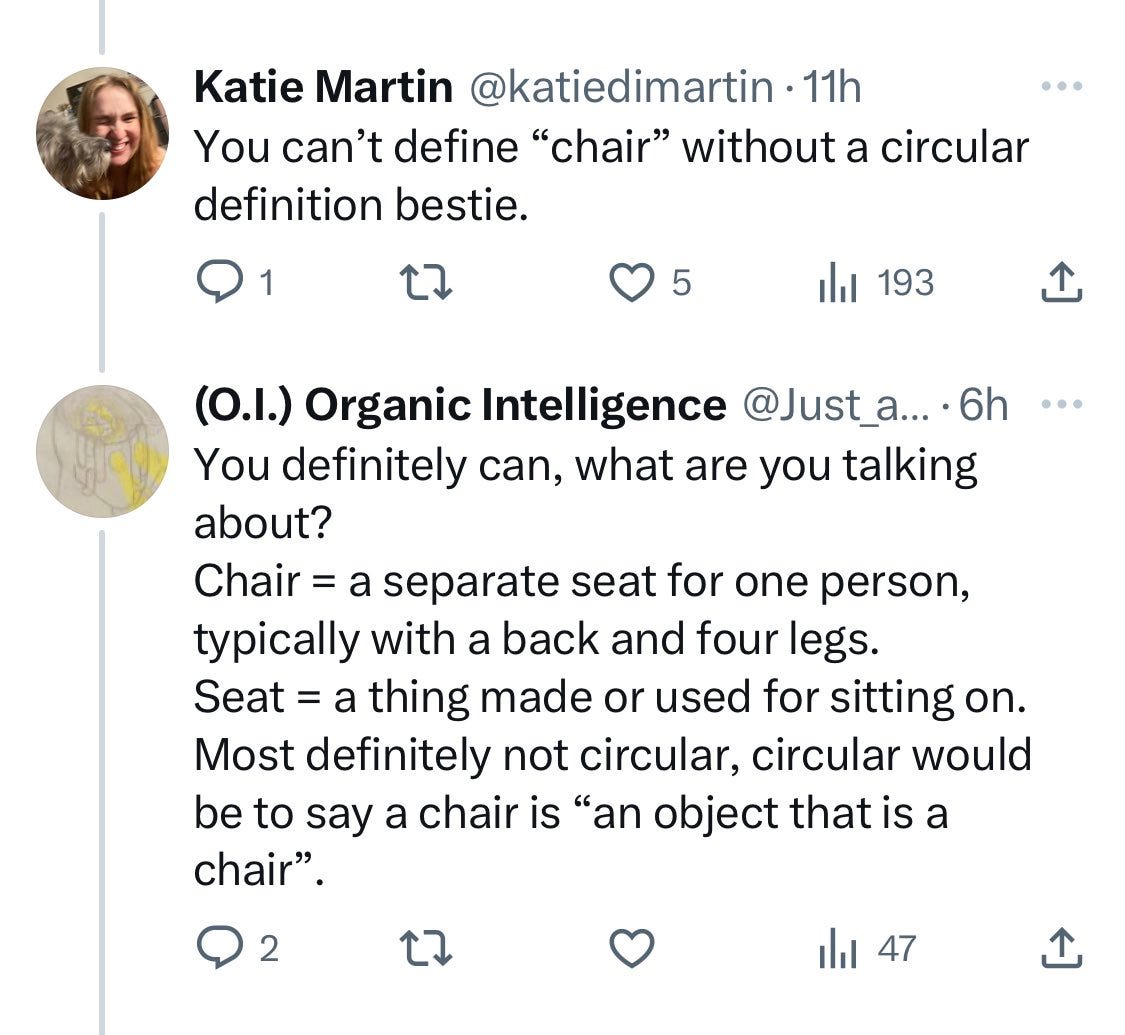
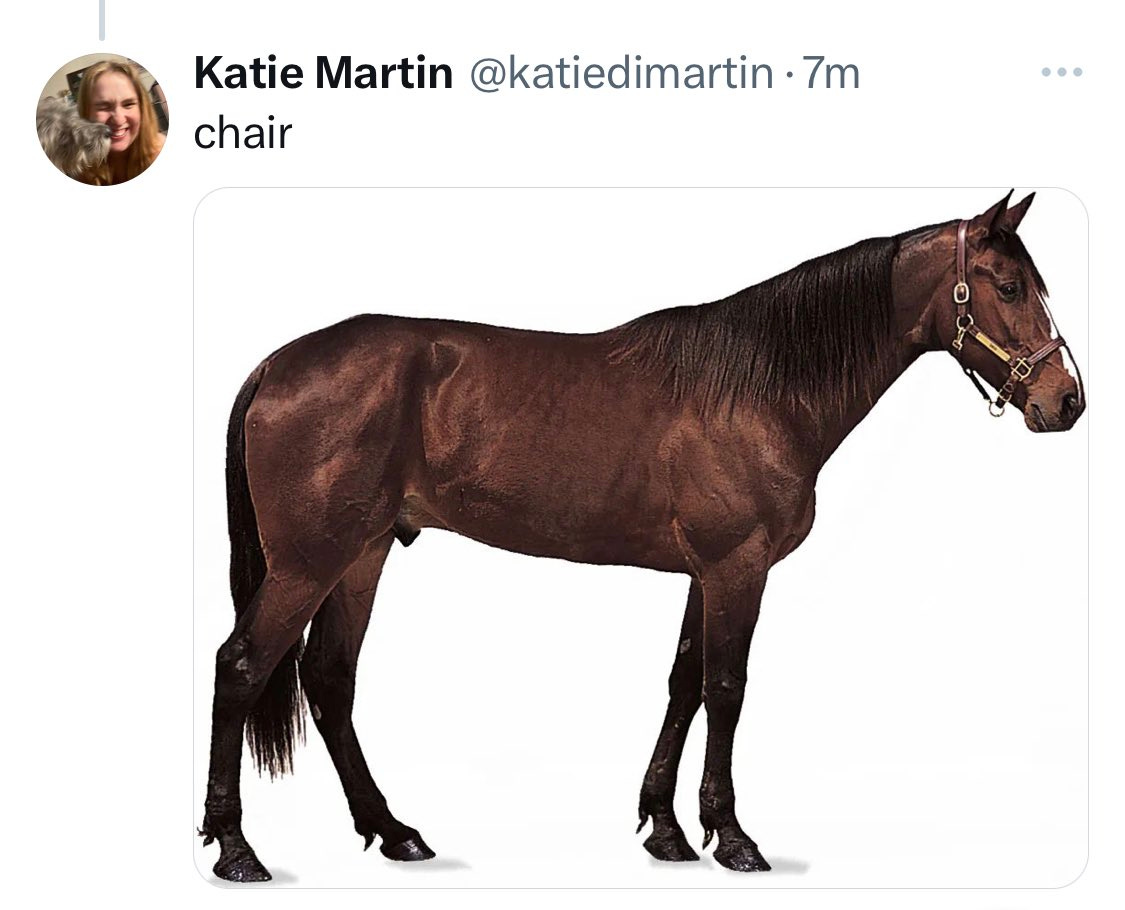
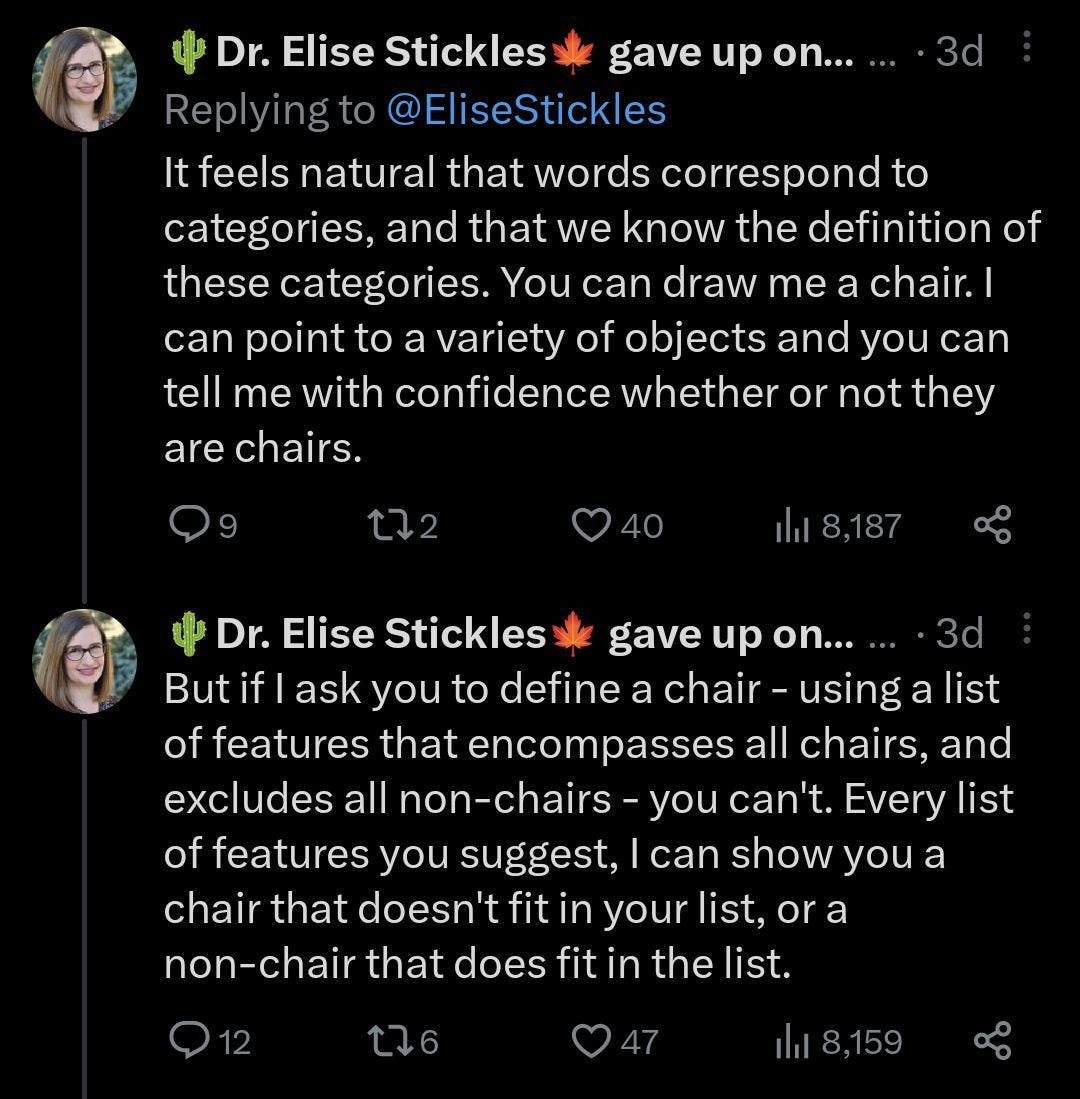
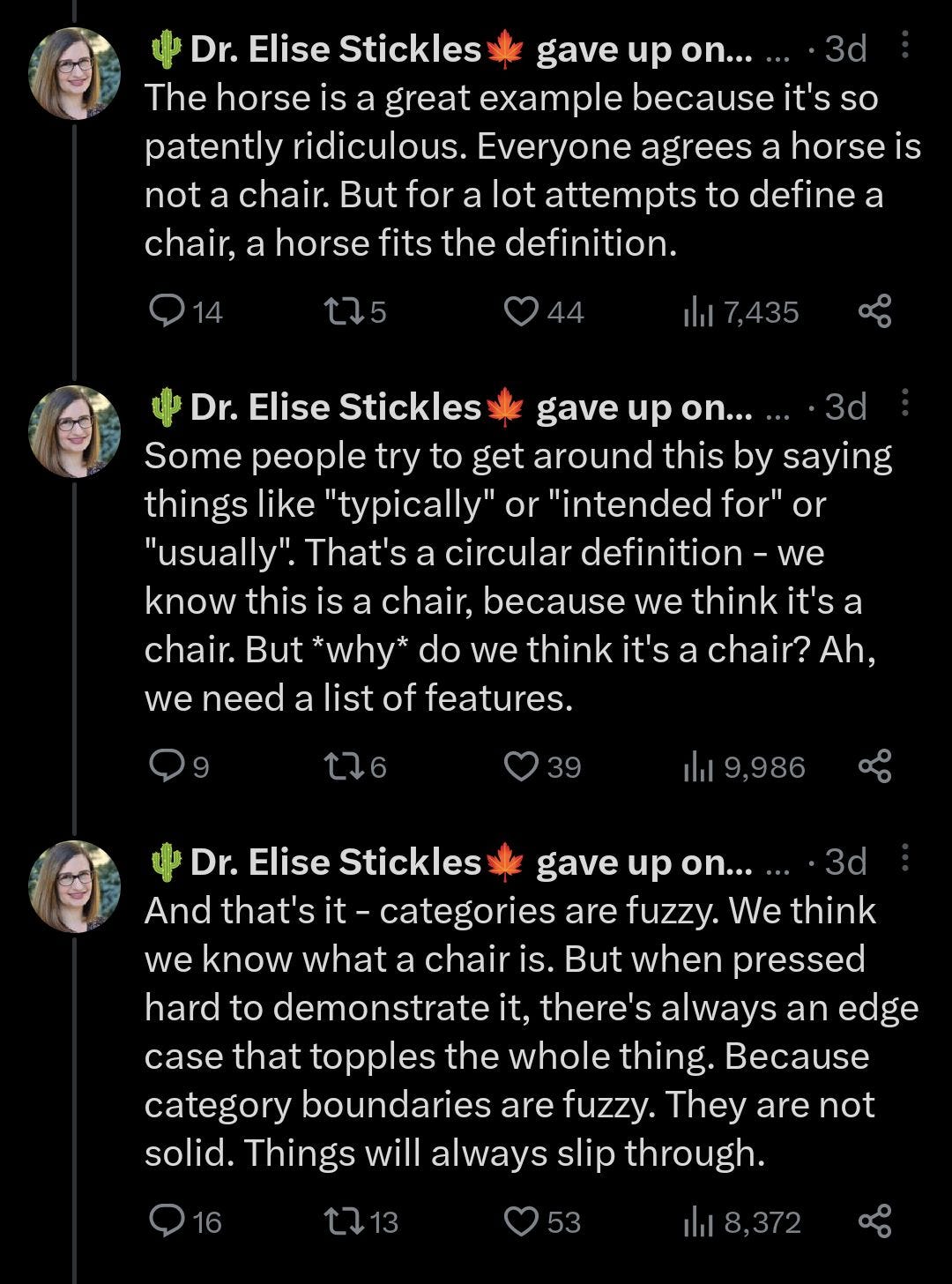
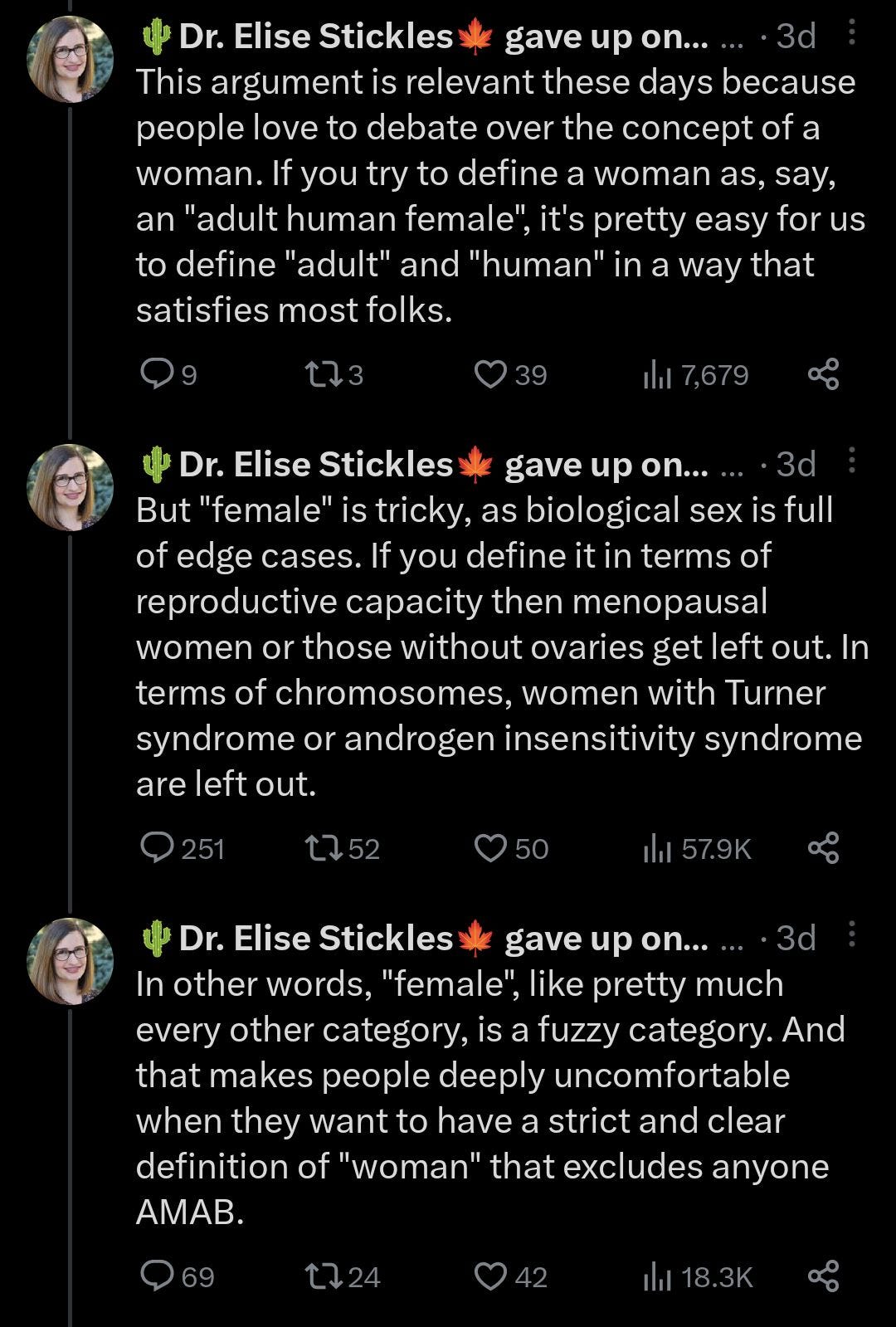




I love your work! Wonderful!
Love to read your clear thinking, Eva!